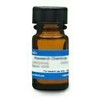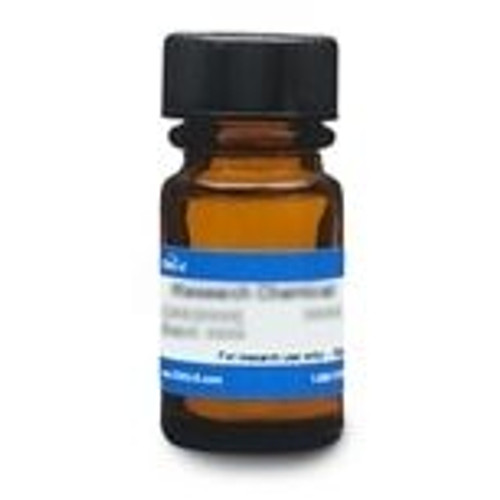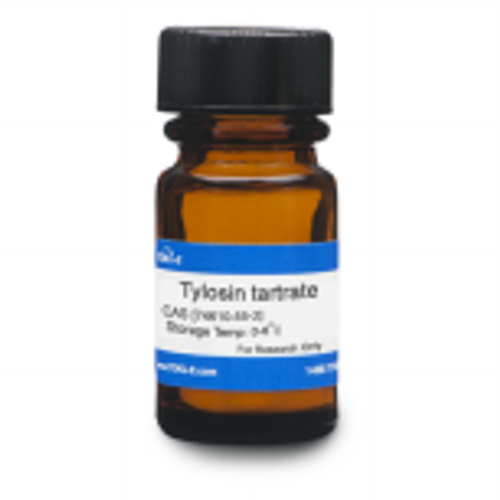Tylvalosin Tartrate is a 16-membered semi-synthetic macrolide antibiotic that has activity against Gram-positive bacteria and Mycoplasmas. It is bacteriostatic and binds to the 23S rRNA of the 50S ribosomal unit, inhibiting bacterial protein synthesis.
Formulations containing Tylvalosin have been used in veterinary research to study Mycoplasma hyopneumoniae in swine, the causal agent of enzootic pneumonia. Since the compound can cause hypersensitivity reactions in laboratory animals, those with with known hypersensitivity to Tylvalosin should avoid contact with this product.
Tylvalosin Tartrate is soluble in water.
| Mechanism of Action | Macrolides are generally considered to be bacteriostatic agents that exert their antibiotic effect by reversibly binding to the 23S rRNA of the 50S ribosomal subunit, thereby inhibiting bacterial protein synthesis. |
| Spectrum | Tylvalosin Tartrate has activity against Gram-positive bacteria and Mycoplasmas, with some activity against Gram-negative fastidious bacteria. It has no activity against the naturally resisant Enterobacteriaceae. |
| Microbiology Applications | It is considered that there are multiple mechanisms responsible for resistance to macrolides such as alteration of the ribosomal target site, active efflux mechanisms and inactivating enzymes. Generally, strains of B. hyodysenteriae have higher MIC values in cases of resistance against other macrolides, such as Tylosin. |
| Eukaryotic Cell Culture Applications | Tylvalosin reduces LPS-induced production of pro-inflammatory cytokines, prostaglandin E2, and nitric oxide in RAW 264.7 cells. |
| Molecular Formula | C57H93NO25 |
| References |
Lopez RA et al (2020) Evaluation of the clinical efficacy of a water soluble formulation of Tylvalosin in the control of enzootic pneumonia associated with Mycoplasma hyopneumoniae and Pasteurella multocida in pigs. Porcine Health Manag. 6(1):39 Okamoto R et al (1979) The activity of 4''-acylated tylosin derivatives against macrolide-resistant Gram-positive bacteria. J Antibiot (Tokyo). 32(5):542-524 PMID 528400 Zhao Z et al (2014) Tylvalosin exhibits anti-inflammatory property and attenuates acute lung injury in different models possibly through suppression of NF-κB activation. Biochem. Pharmacol. 90(1), 73-87
|







